
The Global Peace Festival (GPF) Malaysia and University Malaya teamed up together to organised the third edition of the GPF Dialogue at the Institute of Research Management and Monitoring (IPPP), University Malaya on “Re-imagining Education in the 21st Century”.
The idea of hosting the Dialogue came about in response to the recent launching of the National Education Blueprint. The Blueprint is a 13-year education policy aimed at improving the quality of the Malaysia education system to be on par with international standards.
“Our goal, and the purpose of the education system, is to equip our students holistically to allow them to succeed in the 21st century, with all of the opportunities and challenges that this new era presents.” as stated Tan Sri Muhyiddin Yassin, the Education Minister of Malaysia.
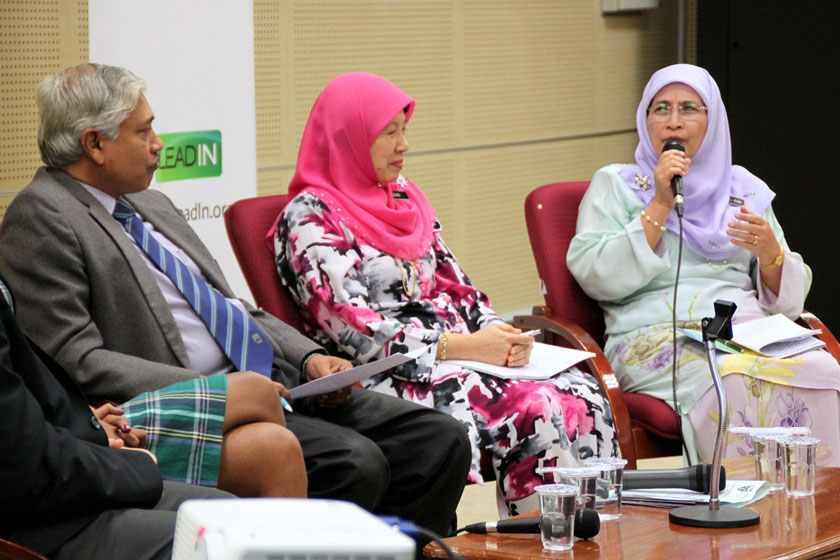
Challenge of Reforming The Education System
Among the top 10 high performing education systems in the world, especially in countries such as Finland, South Korea, Shanghai (China) and Singapore, an empowered school culture and professional development of teachers contribute to the full potential of each students in schools.
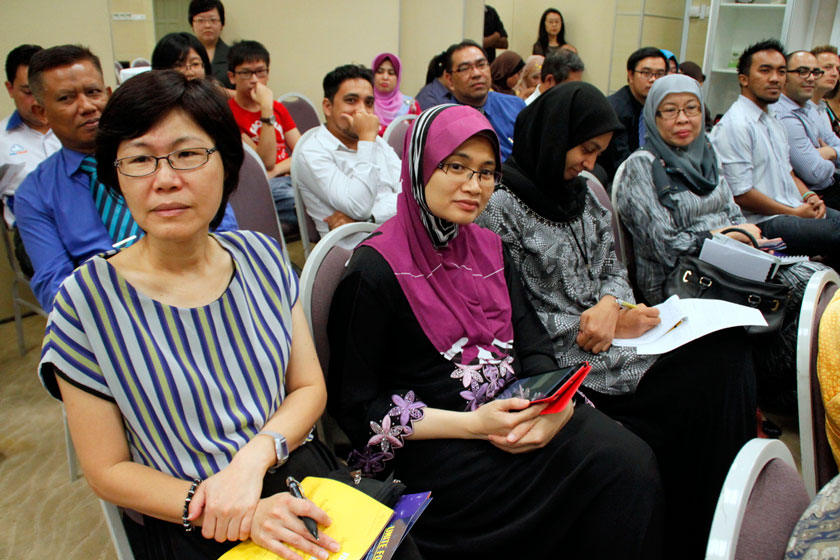 GPF Dialogue invited speakers representing different sectors to provide a spectrum of perspectives on 21st Century education. Among the speakers are Dr. Azian Tengku Syed Abdullah, Deputy Director, Ministry of Education; Dr. Tony Devine, Executive Director of LeadIn (USA); Ms.Veena Sidhu,CEO of Mindvalley Engage and Mindvalley Publishing; and Datin Noorul Aini bt Ambak, Principal of SMK Sri Aman, PJ & AJK of Secondary School Principals Council. Mr. P. Puniamurthy, Principal Registrar from the University Malaya moderated the session.
GPF Dialogue invited speakers representing different sectors to provide a spectrum of perspectives on 21st Century education. Among the speakers are Dr. Azian Tengku Syed Abdullah, Deputy Director, Ministry of Education; Dr. Tony Devine, Executive Director of LeadIn (USA); Ms.Veena Sidhu,CEO of Mindvalley Engage and Mindvalley Publishing; and Datin Noorul Aini bt Ambak, Principal of SMK Sri Aman, PJ & AJK of Secondary School Principals Council. Mr. P. Puniamurthy, Principal Registrar from the University Malaya moderated the session.
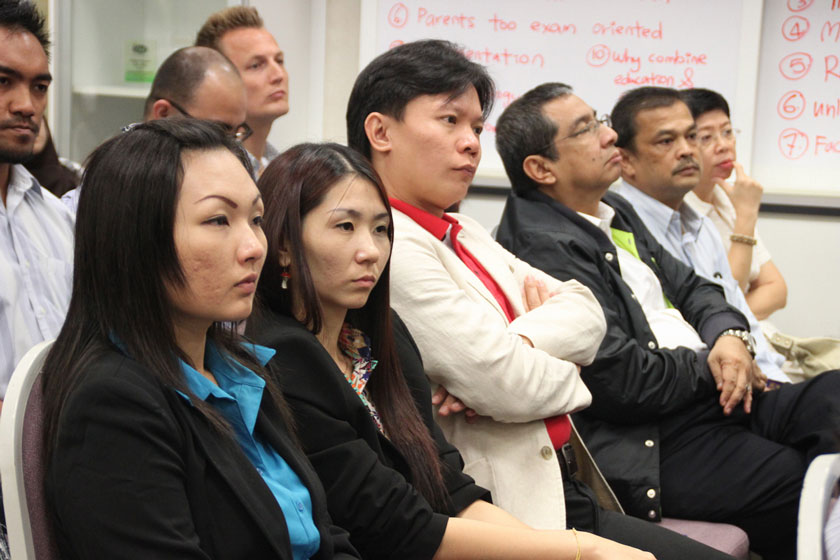
Having good teachers who inspire and lead drives the quality of education. A vivid point was made by Mr. P. Puniamurthy who stated that “education should be a leader among sectors.” Good schools have teachers who create awesome classroom cultures that engage their students and who themselves strive to be better all the time though a great professional culture that strives for excellence and care.
Social economic conditions of poor students, inaccessibility of good school infrastructures and teachers, policy formulation and delivery, social cohesion, and high stakes testing, were among the issues that that sparked keen discussion and engagement by the audience.
Transforming Schools Culture
Dr. Tony Devine raised the importance of building the right attitude and mindset, especially at building trust among teachers. Ms. Noorul also agreed on the importance of having an open attitude by encouraging group discussions among teachers at problem solving.
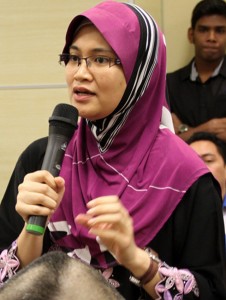
Based on Dr. Tony’s vast experience dealing with teachers in developing nations such as Kenya and Latin America, he stressed that “there are pockets of tremendous strength of teachers and principals who are doing amazing work and they need to be lifted-up as leaders.”
On the other hand, Ms. Veena gave the example of Green School in Bali where the objective of the school is redefined into a learning ecosystem that inculcates balance and duality education. Schools should promote non-academic, experiential learning such as learning about sustainability and environmental preservation, as well as nurturing compassion.
Ms. Veena gave the example of the Green School in Bali that strives for a learning ecosystem that inculcates balance and duality education. Schools can promote non-academic, experiential learning such as sustainability and environmental preservation, as well as nurturing compassion.
Besides, Dr. Devine’s highlighted the importance of breaching the gap between schools and communities and widening the learning opportunities for poor students. In addition to that, Dr. Azian also shared the government’s effort at keeping up with a 21st century education by introducing virtual learning, wherein Guru Cemerlang or excellent teachers teach students virtually via the internet, especially for Orang Asli students.
[wowslider id=”15″]
21st Century Education
The second session of the discussion revolves around the importance of a well-rounded education to fulfil the market and social needs of the future generation.
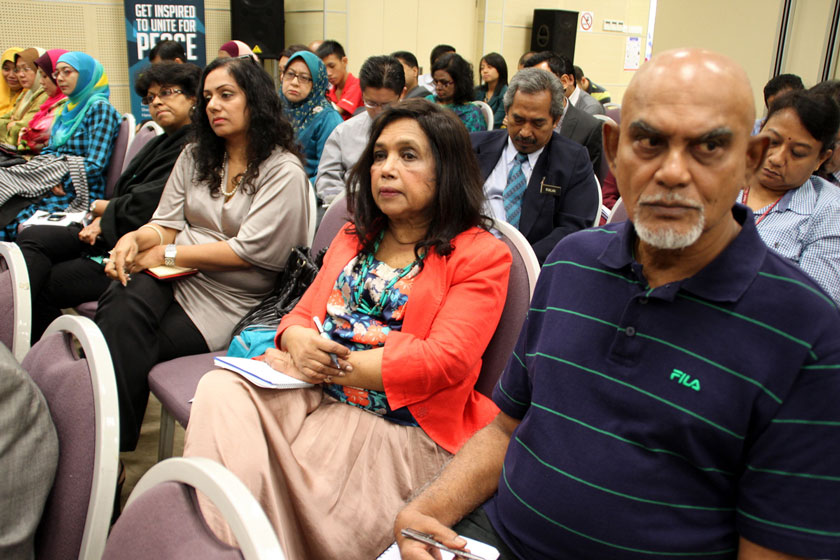
Dr. Devine informed that numerous studies conducted with small, medium and large companies point to employers seeking ethical workers who can be trusted, who can work effectively in teams, are creative, and can solve problems. Academic achievements by themselves are no longer the soul criteria in the hiring process. Employers are seeking that new employees have ingrained the umbrella competencies of character and creativity. Schools have a tremendous opportunity to nurture these vital and necessary competencies and become more relevant to the 21st Century economy and world.
Ms Veena, on the other hand, believed education should promote open-source accessibility and the freedom of the mind, where students can get instant information by a click on a button.

Dr. Azian ensured that teaching should be a profession of choice, thus the Ministry of Education is working at restricting the profession to those with an outstanding academic credential, well-rounded character and most importantly having a passion to teach.
Ms. Noorul gave the example of her school, SMK (P) Sri Aman, which is ranked as sekolah cemerlang (Excellent School). As the school principal, she introduced various experiential learning programmes such as the Sri Aman Environmental Leadership to promote a wholesome education.
Character and Creativity Initiative
Later the day, Dr. Devine delivered a Luncheon Talk on the Character and Creativity Initiative (CCI), an initiative of the Global Peace Foundation that has completed the pilot phase in Kenya and is currently advancing to other countries. CCI works with teachers, principals, school staff, parents and community leaders to nurture character and creativity thought the entire school and extra-curricula experience. Teachers and principals leading in their classrooms and schools are transforming the school culture towards a caring community that is conducive to learning.
This pertinent discussion continues in the First Global Summit on Character and Creativity, December 5, 2013, Kuala Lumpur, Malaysia at the University of Malaya.
[wowslider id=”16″]
Join us for this exciting networking opportunity to discuss how to nurture character and creativity and learn best practices from educators around the world. Learn more are register at: http://www.leadin.org/events/global-summit-malaysia







